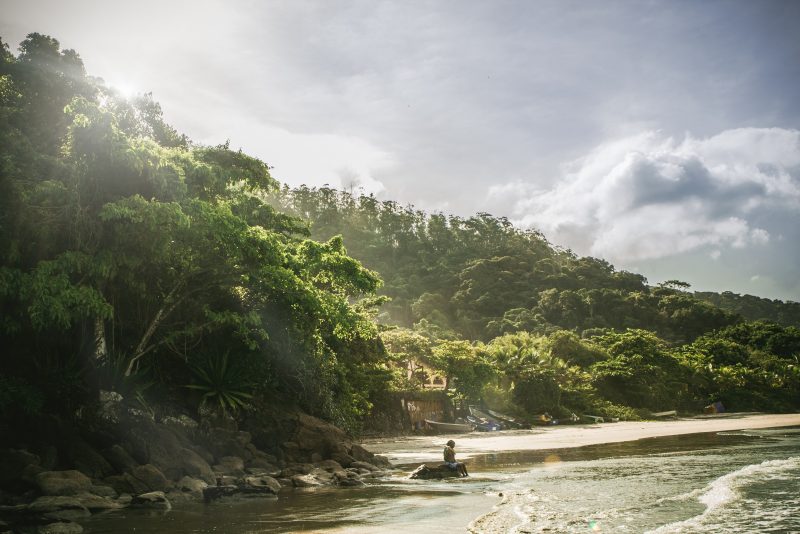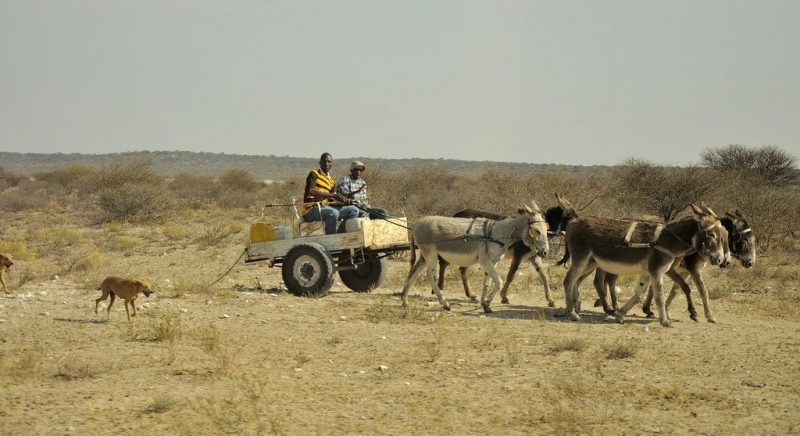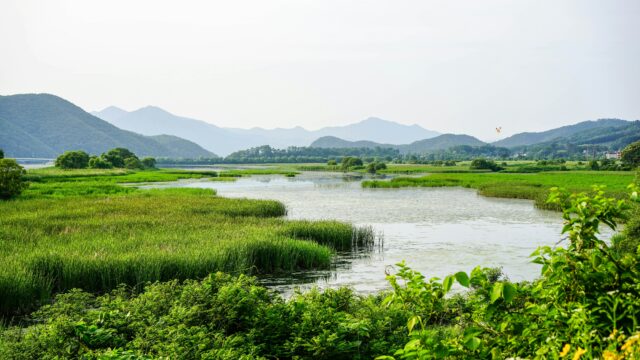
Uganda is a country with a lot of water. Its hills and rivers deliver most of the water that make up the Nile river. Winston Churchill once referred to Uganda as the “Pearl of Africa” for its lush environment that gave rise to a “profusion of brilliant life”. But this is now giving way to long periods of drought in the south and west.
As with many stories, this is complex with many connecting elements. As the water that feeds Lake Victoria and the Nile river make its way from its mountain sources through meandering rivers, they pass through many wetlands. These vast tracts of papyrus swamp have for centuries acted as a massive water regulator and filter, providing farms, villages and towns with a steady supply of water. Together, they make up about 15% of Uganda’s total land area. When the rains come, wetlands slow the flow of water and hold back inundation. When rains don’t come, they discharge stored water to keep things lush. As well as regulating water, wetlands also produce it. Research shows that on average, 40% of all rain over land originates from land evaporation. With such significant wetland areas in Uganda, they are particularly important for national rainfall and the economy.
As Uganda has developed its economy, new imperatives have been adopted, specifically the creation of jobs, revenue and investments. To boost productivity, wetlands have been enthusiastically drained, reclaimed and ploughed. Land titles have been awarded and the title holders have used wetlands to cultivate commercial crops and build houses and factories . Moreover, as swamp waters have receded, they have yielded copious quantities of sand for construction.
“ As wetlands have declined, rainfall patterns have changed and become more erratic. The loss of wetlands seems to be noticeably changing the weather.”
Between 1994 and 2009, Uganda inhabited more than 11,000 km2 of its wetlands. Around this time, between 1983 and 2013, there was a 12% decrease in rainfall, particularly in Western and Central Uganda. As rainfall decreased, its patterns also increasingly correlated with distant sea temperature variations (Indian Ocean Dipole and the El Niño–Southern Oscillation). As wetlands have declined, rainfall patterns have changed and become more erratic. The loss of wetlands seems to be noticeably changing the weather.
In the south and west of Uganda, this now threatens people’s lives in quite profound ways. In Mbarara town on the Rwizi River, things are coming to a head. The catchment within which Mbarara exists can no longer keep pace with the demands of the town. As part of the national development plan, Mbarara has been earmarked to become a city, equipped with factories, farms, decent houses and schools. $270 million dollars have been set aside for investment in 2018. However, there has been growing concern that the river is shrinking and becoming erratic. Channels have been created in wetlands so that the land can be farmed, and farms are creeping even closer to the river course. Artisanal miners are scooping out sand and stone providing needed income for low income households, and larger companies are building business facilities.
Further into the catchment, steep slopes and hilltops that feed the catchment with water have been assigned land titles. These too have become part of a new farming industry that now feeds export and local markets. Milk producers now export a whopping $350 million worth of dairy produce, up from nothing a few years ago. Government policy has backed such investment and has issued land titles in both wetlands and hill tops. The opportunity to own land has been quickly taken up by those with the right connections, and investors have come in from elsewhere to be part of the promised economic dream.
Yet this dream is becoming a nightmare for some. Now, during the rainy season, water arrives unchecked in unprecedented volumes, creating flash floods. In the dry season, people struggle to find water, and dry season crop failure is becoming regular. In March 2018, things reached a head when flash floods engulfed a recently constructed hotel, washed away several homes and killed 5 people. This has raised a wider consciousness that has now caught the attention of the government.

Looking for quick solutions, the National Water and Sewerage Corporation has initiated a €50 million investment to pipe water approximately 40km from the Kagera River. Yet the Kagera River is also integrated into wetland systems that face similar challenges as Rwizi, and it is possible that this solution can only be temporary.
As a member of the Green Economy Coalition (GEC), the Ugandan think tank Advocates Coalition for Development and Environment (ACODE) is getting into action to solve this more permanently. Complex issues require adaptive solutions that are compelling for many people. To do this, we are starting a process to bring together all the people who are involved in this process.
For sustainable change to happen, many people need to be involved. In our experience, pushing people in a certain direction creates an equal and opposite counter force. To act against farmers who cultivate wetlands will create social anger. To act against powerful interests who can make quick returns on new land acquisition will invoke strong political resistance. To prohibit sand miners will remove the only chance that some people have to make a living. Any solution must therefore grow from within. Our work will be to start many conversations with many people in the catchment, identify important issues, find out what people are willing to try, and help them to go ahead and do these things. And as we together act, we will find out what works, and what does not work. With evidence, we will foster people movement to take many small actions that together will grow and bring about the desired change.
The Minister of Environment, Hon. Mary Goretti Kitutu is keen to see Rwizi River issues solved. Under a framework for river systems’ restoration “bring back our water”, ACODE, local government, citizens and local businesses will work to build a sustainable catchment and a prosperous town , built on and respectful of nature’s magnificent capital.
- Stuart Worsley, GEC


